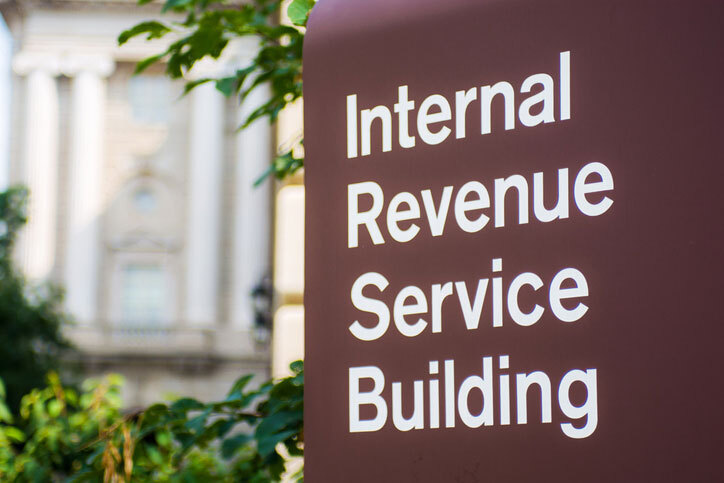How to Appeal and Audit
For taxpayers, getting audited can be incredibly frustrating and confusing. However, don’t let yourself be paralyzed by fear, you can appeal your audit.
Much like an illness, it is in your best interest to know how to treat an audit should you ever catch it. And, if you have received an audit notice, you need to confront it as soon as possible.
IRS audits are a complex aspect of our country’s tax and legal system. Below is an explanation of what causes an audit, and how you can appeal an audit.
What is an IRS Audit?
An IRS Audit is an in-depth investigation of your tax profile by the IRS. The audit system was implemented by the IRS initially to help reduce the “Tax Gap.” This is the difference between what is owed to the IRS and what the IRS actually receives from taxpayers.
What Causes an Audit?
The majority of audits are computer-generated (the IRS relies heavily on computers). The algorithm’s selections may seem random – some are – but many selections are based on individuals who display suspicious activity.
The IRS National Computer Center compiles your tax return data and generates what is known as a DIF score. The higher your DIF score, the more likely you are to be audited.
This algorithm that creates your DIF score is highly secretive. But, one factor we do know is that the higher your Total Positive Income, the higher your DIF score may be.
Getting Audited
While some audits are wholly routine, if the IRS suspects that you are living beyond your means, they will audit you.
If your TPI is over $500,000, the likelihood of getting audited jumps significantly. Self-employed people are also much more prone audit selection as well.
The IRS only sends audit notices by mail and never via phone call (if you do receive a call that you have been audited, it is probably a scam). Typically, the IRS will conduct an audit through mail or an in-person interview.
Regardless of the setting of your audit, you are entitled to a list of rights under IRS Publication 1: Your Rights As A Taxpayer.
Appealing an Audit
Not many taxpayers attempt to appeal their audits. With proper instruction and planning, appealing doesn’t have to be time consuming or complicated. Your chances of securing a tax reduction are quite high, so you should consider appealing.
Filing a Protest
After you have been notified of the audit, the IRS will send an examination report with proposed adjustments. Don’t sign this – instead, appeal the audit.
If you owe less than $25,000 you can use the IRS Form 12203, Request for Appeals Review. If you owe more than $25,000, you must file a formal protest letter.
Formulating your protest can be challenging. Consider consulting with a tax professional if you require assistance. A tax expert can also help you prepare for other aspects of the appeal process, such as the appeals hearing.
Once your protest has been received and confirmed, you will go to the Appeals Office where an appeals officer will review your case.
Preparing for the Appeals Hearing
In this phase, you will have sixty days to prepare your case. Use this time to review everything that was presented to the auditor.
Check to see if the auditor misrepresented or overlooked something in their analysis. It is even best to examine the tax laws cited by the auditor to make sure they support their position.
Create and organize a script of all the points you want to make during the hearing. Be sure to bring all documents, evidence, and files necessary to substantiate your claim.
The Appeals Hearing
The day of your appeals hearing has come. Take note that an appeals officer does have an incentive to settle with you.
They want to avoid the possibility of the IRS losing in court– or dealing with too many court cases in general. Quite often, the appeals officer is more or less looking to see if you can present your case in an organized and succinct manner.
After your hearing, it may take several months to get your settlement papers. If your appeal is denied, ask what was wrong because it might just have been some missing documentation.
The Right to Representation
Within the Taxpayer Bill of Rights, is the right for taxpayers to retain an authorized representative of their choice when dealing with the IRS. To ensure that you successfully navigate the appeals process, you can reach out to a third party.
Should you choose to find a representative in TaxRise, we will provide you with an attorney and the bonus of our industry knowledge, experience, and resources.
Legal representation helps you negotiate with the IRS during and after an audit. An effective attorney can help settle your liability for less than you owe by making an offer in compromise, seeking a penalty abatement, or requesting a payment plan.
Working with our attorneys will save you considerable time. Our efforts will allow you to continue working, taking care of your family, and dealing with other important matters without significant interruption.
Learn how easy it is to qualify for tax savings.




